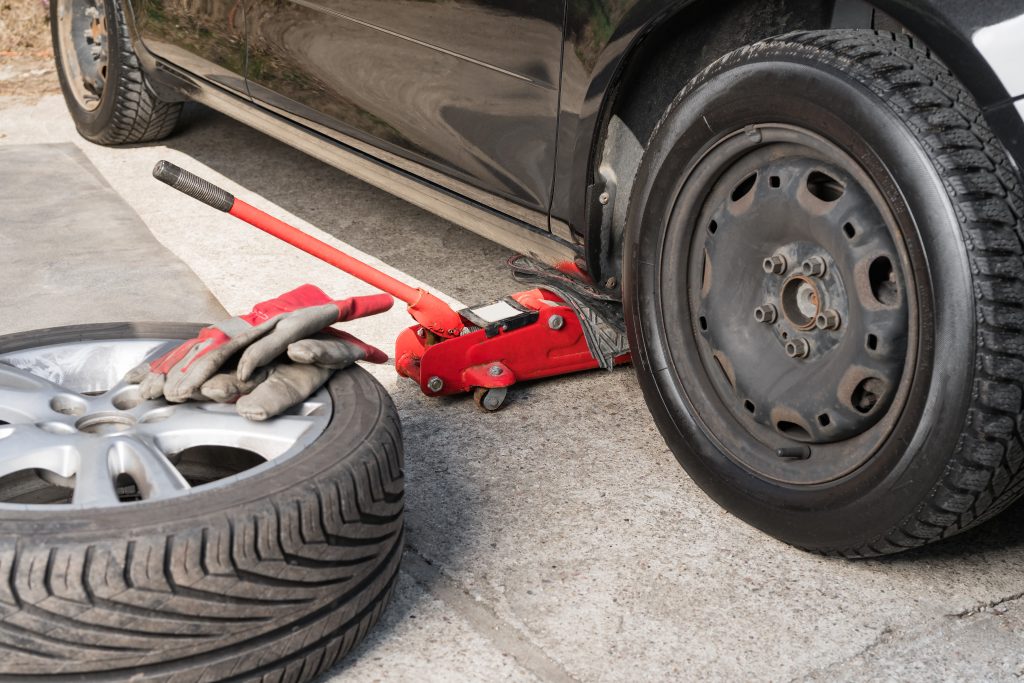4-season tyre - Summer - Winter

Choosing the right tyres for your vehicle is crucial to ensuring your safety and optimising your car's performance all year round. Summer, winter and 4-season tyres each have specific characteristics adapted to different weather conditions. This article explores the differences between these types of tyre, focusing on 4-season tyres, their composition, advantages and disadvantages.
4 Seasons tyres
All-season tyres are designed to offer acceptable performance all year round. They combine elements of summer and winter tyres to ensure a degree of versatility. 4-season tyres are often 3PMSF (Three Peak Mountain Snow Flake) approved, indicating that they meet European Union requirements for winter driving.
4-season tyres have a hybrid tread with large longitudinal grooves typical of summer tyres and sipes specific to winter tyres. These sipes improve grip on snow and ice. The rubber of these tyres includes silica, which prevents the tyre from hardening at low temperatures, ensuring better traction and safety when temperatures fall below 7°C.
Benefits
- Versatility: All-season performance, even in moderate winter conditions.
- Economical: Cheaper than buying and maintaining two separate sets of tyres.
- 3PMSF approval: Complies with regulations in force in certain French regions.
Disadvantages
- Average performance: Cannot match the specific performance of summer tyres in summer and winter tyres in winter.
- Faster wear: 4-season tyres often wear faster than specialist tyres.
Winter tyres
Winter tyres are specifically designed for severe winter conditions. They excel in temperatures below 7°C and on snow-covered or icy surfaces. Winter tyres are also 3PMSF approved, ensuring their effectiveness and compliance with legal requirements.
Winter tyres are characterised by a tread with a large number of sipes, many more than on summer or 4-season tyres. These sipes act like studs, improving grip on snow and ice. The depth of the tread allows water, mud and snow to evacuate efficiently, which is crucial in preventing aquaplaning. The rubber of winter tyres contains a high proportion of silica, enabling them to remain supple and efficient at low temperatures.
Benefits
- Maximum grip: Excellent traction on snow, ice and at low temperatures.
- Increased safety: Optimised for extreme conditions, reducing the risk of accidents in winter.
Disadvantages
- Rapid wear in summer: The soft rubber of winter tyres wears more quickly at higher temperatures.
- Cost: Need to change tyres seasonally, which can be costly and time-consuming.
Summer tyres
Summer tyres are designed for optimum performance in hot weather. They offer excellent grip on dry and wet roads thanks to a harder rubber compound that is more resistant to high temperatures.
Summer tyres have large blocks and specific grooves that optimise the contact area with the road. This improves handling and reduces braking distance on both wet and dry surfaces. The rubber of summer tyres hardens at low temperatures, making them unsuitable for winter use.
Benefits
- Optimum performance: Superior handling and braking in summer conditions.
- Durability: Less wear in hot weather than winter tyres.
Disadvantages
- Ineffective in winter: Reduced grip and increased risk on snow and black ice.
- Necessity of seasonal change: Obligation to switch to winter tyres as soon as temperatures fall.
The choice between summer, winter and 4-season tyres depends largely on the climatic conditions in your region and your driving habits. 4-season tyres represent an interesting compromise for those who live in areas with moderate winters and wish to avoid seasonal tyre changes. However, for extreme winter conditions in Luxembourg, winter tyres are still essential for maximum safety. Summer tyres, on the other hand, are essential for optimum performance in the summer months. Understanding the specific features of each type of tyre will help you make an informed choice, ensuring safe and comfortable driving all year round.

Written by
Luxauto
Posted on
13 June 2024
